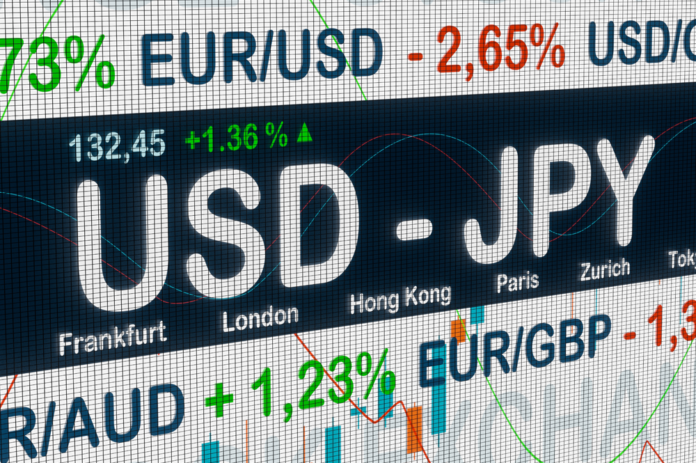The U.S. dollar loses value today and retreats after reaching highs, while the British pound gains ground after UK CPI came in lower than expected in March.
Dollar falls but maintains its strength
The dollar, considered a safe haven, hit new highs on Tuesday, just after Federal Reserve (Fed) Chairman Jerome Powell signaled that interest rates are likely to stay on hold for a while longer as progress in reducing inflation was less than estimated.
“At this point, given the strength of the labor market and the progress made so far on inflation, it is appropriate to give policy tightening more time and let the data and the evolving outlook guide us,” Powell commented at a Washington-based forum.
This stance contrasts with his remarks to a U.S. Senate panel five weeks ago, where he suggested the Fed was close to having the confidence to cut rates due to falling inflation.
The greenback experienced some profit-taking on Wednesday, with bond yields pulling back from recent highs after the 2-year Treasury note briefly reached 5.0%.
Pound rises after data release
In Europe, the GBP/USD trades higher after official data indicated that the UK inflation rate slowed less than expected in March, suggesting the possibility of an initial rate cut by the Bank of England.
U.K. consumer prices rose 3.2% annually, a two-and-a-half-year low, down from 3.4% in February.
However, forecasts suggest the rate will likely decrease to 3.1%, indicating that the battle against inflation is far from over.
Bank of England Governor Andrew Bailey said last month that there had been “further encouraging signs that inflation is easing”, although he also indicated that the bank needed more reassurance that price pressures were fully under control before cutting rates.
European Central Bank policymakers have continued to bet on a rate cut in June as inflation remains on track to return to 2% next year.
The yen remains very weak
In Asia, USD/JPY slips 0.1% to 154.55, nearing 34-year highs.
Data from Japan shows that exports rose more than expected in March, mainly on the back of a weaker yen.
The yen’s continued weakness has put traders on guard against any possible interventionist action by the Japanese government, especially considering that several officials have warned in recent weeks that they would not rule out any measures to curb the Japanese currency’s deterioration.



